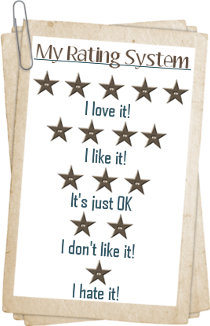For those just beginning their writing career, or contemplating embarking on one, please accept a few humble words of advice.
First, if you want to be a writer, write. Hemingway said it best when someone asked him how they could be a writer: “Go somewhere and write.” So, go somewhere and write. Write every day. Set yourself a goal, say 1000 words, and write those 1000 words. Every day. The object is to write enough, often enough, that the mechanics of building sentences and paragraphs become second nature. You write your 1000 words a day for the same reason a musician plays scales, or an artist sketches. Practice.
Second, write what you know. This has almost become cliché, but it is often misinterpreted. This does not mean that if you're a high school student in Peoria, you can't write about commercial fishermen in Denmark, though that might be difficult. What it means is if you're a big fan of western fiction and have read every Louis Lamour and Zane Grey novel ever written, don't try to write an Agatha Christie style cozy mystery. You know the conventions, the rules, of western fiction. You know what works and what doesn't. Write a western. Write what you know.
Third, read. Read, read, read. Read everything you can get your hands on. Read fiction in your genre and out; read poetry; read history and philosophy; read the back of cereal boxes. Read like a writer. Watch how other writers put their sentences and paragraphs together. See how they handle dialogue and description. Notice what works well and why. Notice what doesn't and why. Every published writer is a teacher. Learn from them.
But mostly write and don't let anybody tell you you're wasting your time. You aren't.
About the author ~
Like all of us, James is a product of his environment.
He was raised in a religious/spiritual family and that spirituality pervades most of his work. He even attended a Catholic Seminary for a year before deciding the priesthood was not for him.
James’ father worked for the phone company as he was growing up, which was much like growing up in a military family. The company transferred his family from town to town every couple of years. By the time he’d graduated high school, they’d moved twenty times. He attended nine different schools in five cities and three states.
He lived mainly in North Dakota until he was eight, since then he lived in Washington and Oregon, moving to Gold Beach when he was sixteen. He finds that the landscape of the Pacific Northwest has done more to influence him than nearly everything else. Its vast forests, rugged mountains, seascapes and sparse population inspire recollections of what the pioneers first fell in love with a century and a half ago. From his house, he can still hike fifteen minutes and spend the entire day without seeing another human being. And the possibility exists that he could see sasquatch. One of his goals is to build a dark fiction landscape of the Pacific Northwest, much like Stephen King has done with Maine. A landscape of dark possibilities.
When he was a child living in Bismark, North Dakota, his parents took James to Fort Abraham Lincoln, the fort Gen. Custer left on his last, fateful campaign and the Knife River Village, the restored ruins of a Mandan village. Now forty years later, the memories have faded, but not the memory of the impression the visits made on a small boy. Years later, he read Dee Brown’s Bury My Heart at Wounded Knee. After that he devoured everything he could find about Native American history and culture. He came to have a deep sympathy for the Native peoples’ doomed resistance to the white culture and admiration for their cultural connection to the natural world around them. The dominant culture seeks to change and subjugate a nature it sees as an enemy; the Natives sought to live within the natural world as one part of a dynamic whole.
He was raised in a religious/spiritual family and that spirituality pervades most of his work. He even attended a Catholic Seminary for a year before deciding the priesthood was not for him.
James’ father worked for the phone company as he was growing up, which was much like growing up in a military family. The company transferred his family from town to town every couple of years. By the time he’d graduated high school, they’d moved twenty times. He attended nine different schools in five cities and three states.
He lived mainly in North Dakota until he was eight, since then he lived in Washington and Oregon, moving to Gold Beach when he was sixteen. He finds that the landscape of the Pacific Northwest has done more to influence him than nearly everything else. Its vast forests, rugged mountains, seascapes and sparse population inspire recollections of what the pioneers first fell in love with a century and a half ago. From his house, he can still hike fifteen minutes and spend the entire day without seeing another human being. And the possibility exists that he could see sasquatch. One of his goals is to build a dark fiction landscape of the Pacific Northwest, much like Stephen King has done with Maine. A landscape of dark possibilities.
When he was a child living in Bismark, North Dakota, his parents took James to Fort Abraham Lincoln, the fort Gen. Custer left on his last, fateful campaign and the Knife River Village, the restored ruins of a Mandan village. Now forty years later, the memories have faded, but not the memory of the impression the visits made on a small boy. Years later, he read Dee Brown’s Bury My Heart at Wounded Knee. After that he devoured everything he could find about Native American history and culture. He came to have a deep sympathy for the Native peoples’ doomed resistance to the white culture and admiration for their cultural connection to the natural world around them. The dominant culture seeks to change and subjugate a nature it sees as an enemy; the Natives sought to live within the natural world as one part of a dynamic whole.
When he was eighteen, James was diagnosed with a severe case of scoliosis. After graduating early from Gold Beach High School in 1978, he underwent surgery that fused most of his lumber spine. Six months in a body cast later, he continued on to college at the University of Oregon, where he earned a degree in English Literature and Creative Writing. Now, forty years after the surgery, his body is beginning to break down a bit. So if you see him and notice he seems to be bent and twisted, you know why.
When he’s not writing, James has worked in the restaurant industry as a cook and as a manager, mostly in the Eugene/Springfield area, but most lately at Gold Beach’s Port Hole Cafe. Looking back, he seems to have a lot of scenes set in restaurants. He enjoy reading, playing an occasional video game, taking his dog for exploratory hikes along the beach or river. He is happily single. (it’s so much less complicated.)
Make sure to visit James at his website James Boyle Writes
Thank you James for stopping by and visiting Lori's Reading Corner.






















1 comment:
Thank you for sharing--very nice post.
Post a Comment